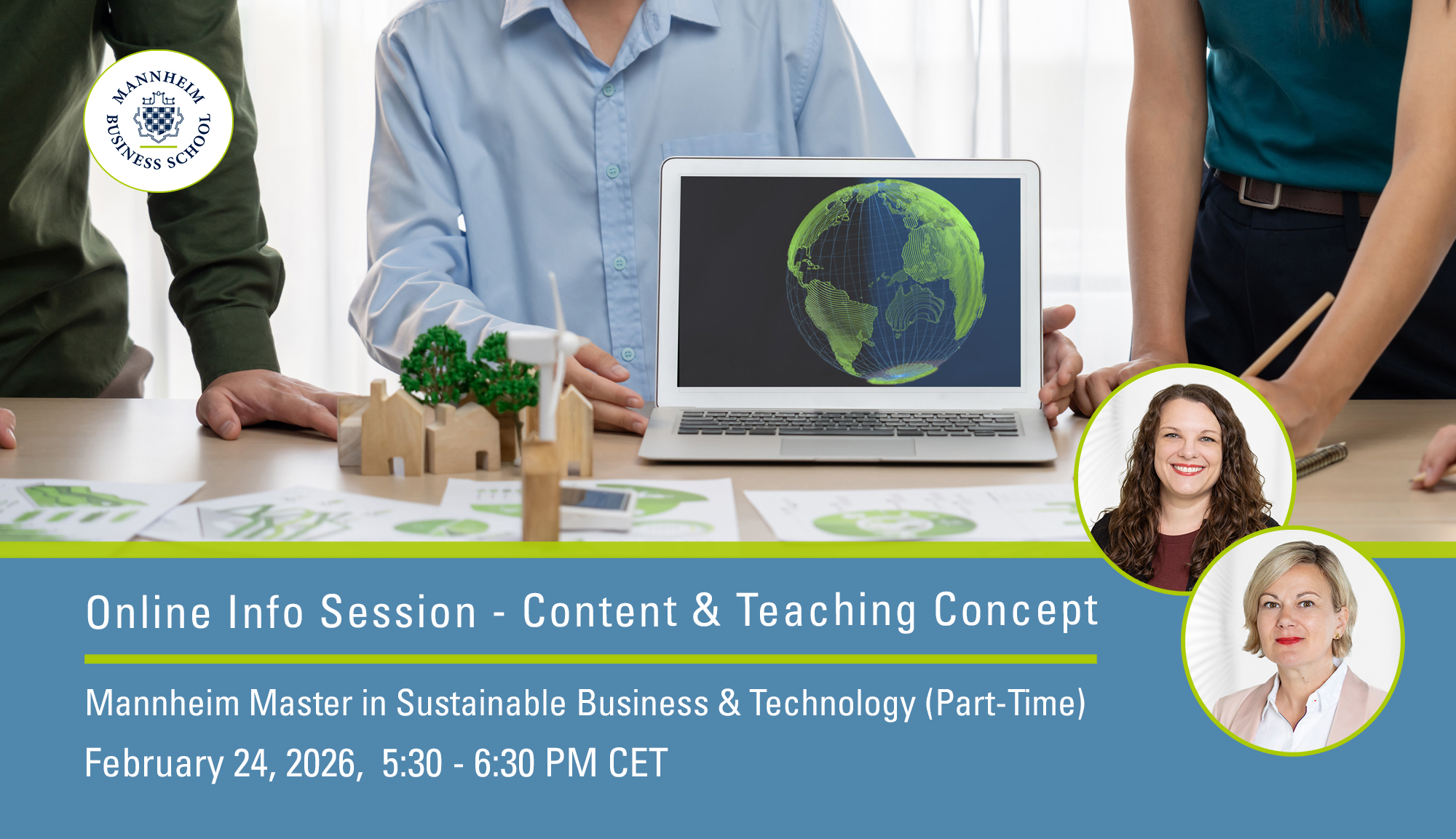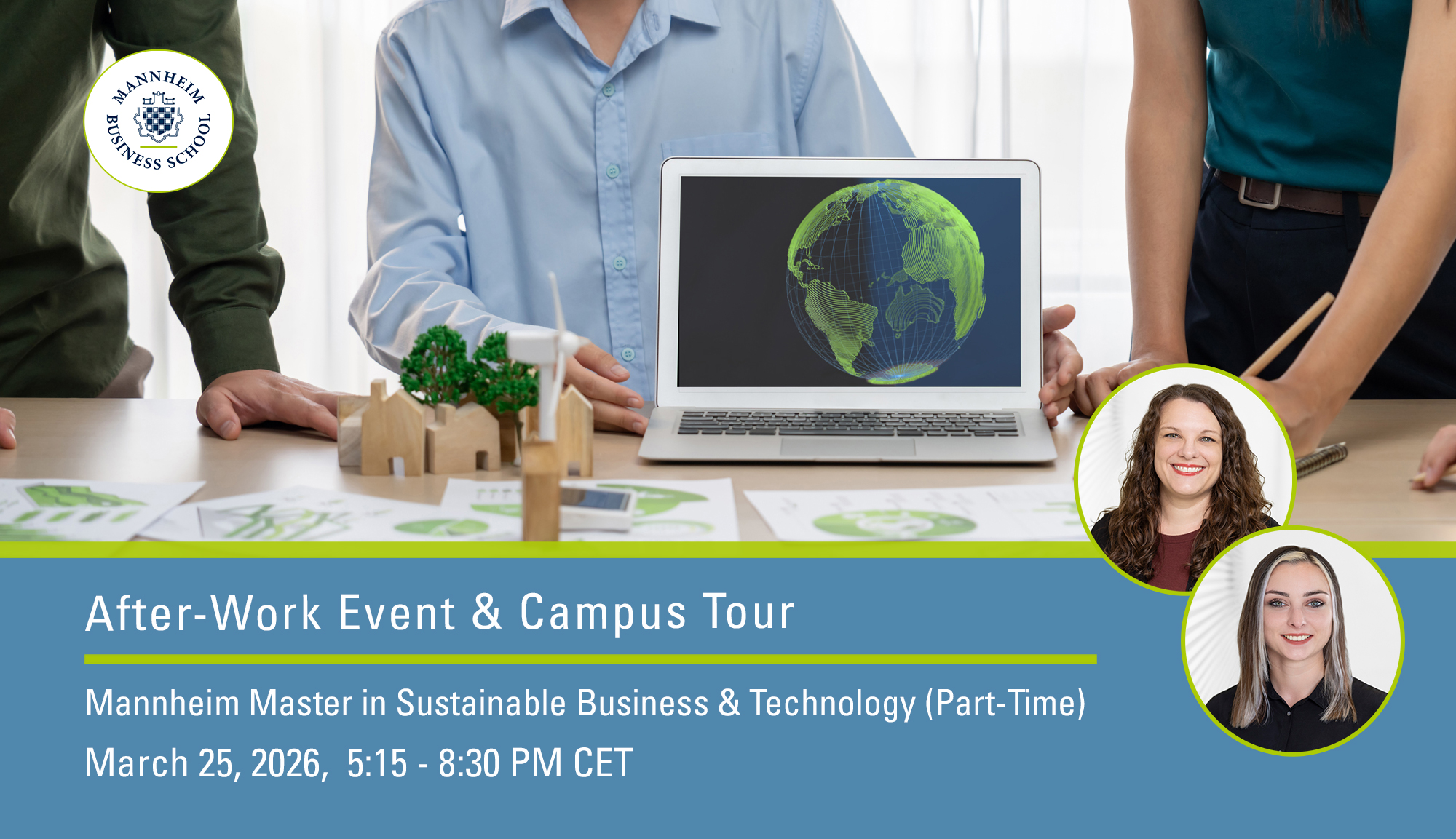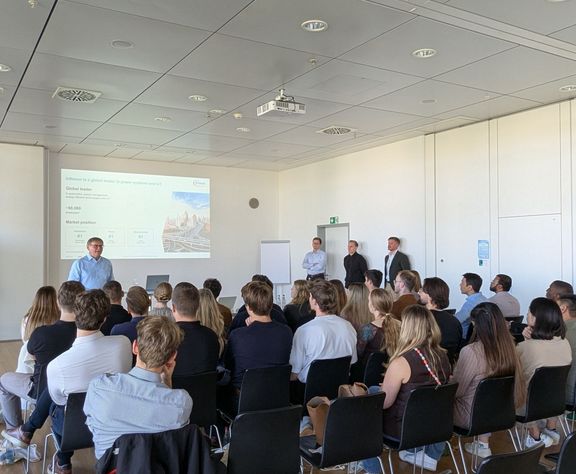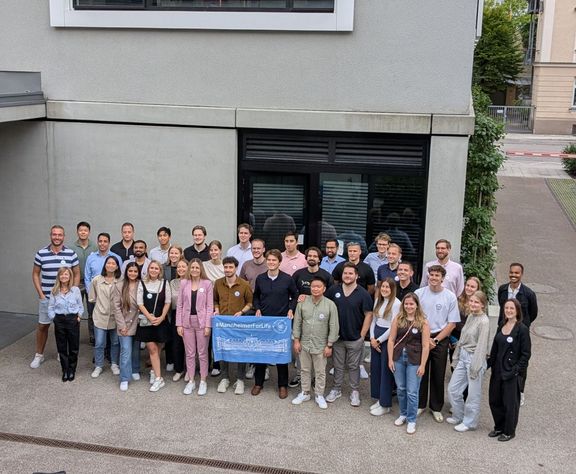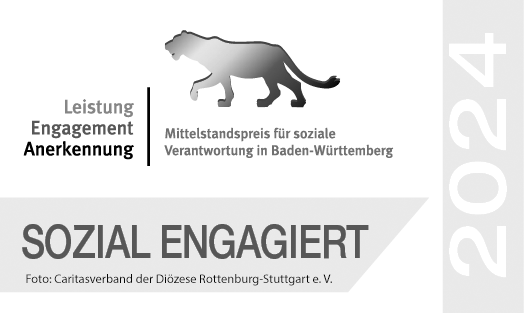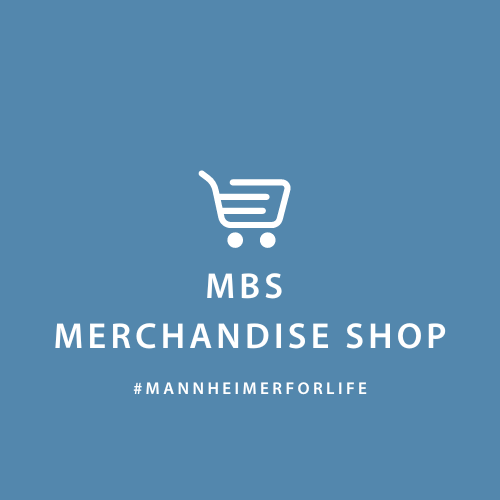Mannheim Master in Sustainable Business & Technology (Part-Time)
You are here: Programs & Courses » Master's Programs » Mannheim Master in Sustainable Business & Technology (Part-Time)
Turning Technology into Business Impact
Today’s engineers and professionals are expected to do more than innovate – they must lead teams, manage complexity, and turn technology into measurable business results. The Mannheim Master in Sustainable Business & Technology equips you with the tools to make that leap. You will learn to manage projects and supply chains, use data for smarter decisions, and drive efficiency through technology.
With sustainability integrated as a strategic practice area, the program prepares you to achieve both business performance and long-term impact. Building on the successful Mannheim Master in Sustainability & Impact Management, it reflects the evolving intersection of technology, management, and sustainability.
Connect with us!
Upcoming Information Events
The Mannheim Master in Sustainable Business & Technology at a Glance

Degree
Master of Arts (M.A.) awarded by the University of Mannheim

Duration & Structure
24-month modular part-time format
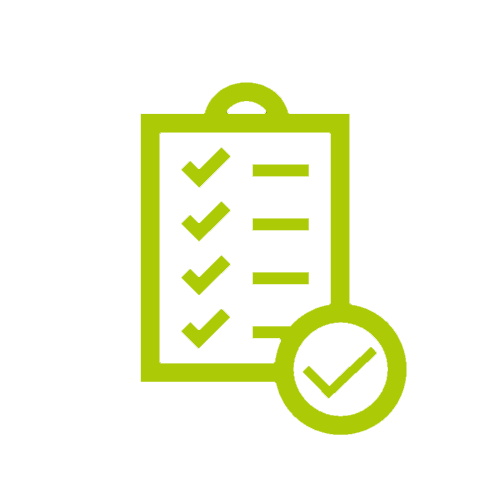
Admission Requirements
A first degree, first work experience, fluency in English, current employment

Language
100 % English
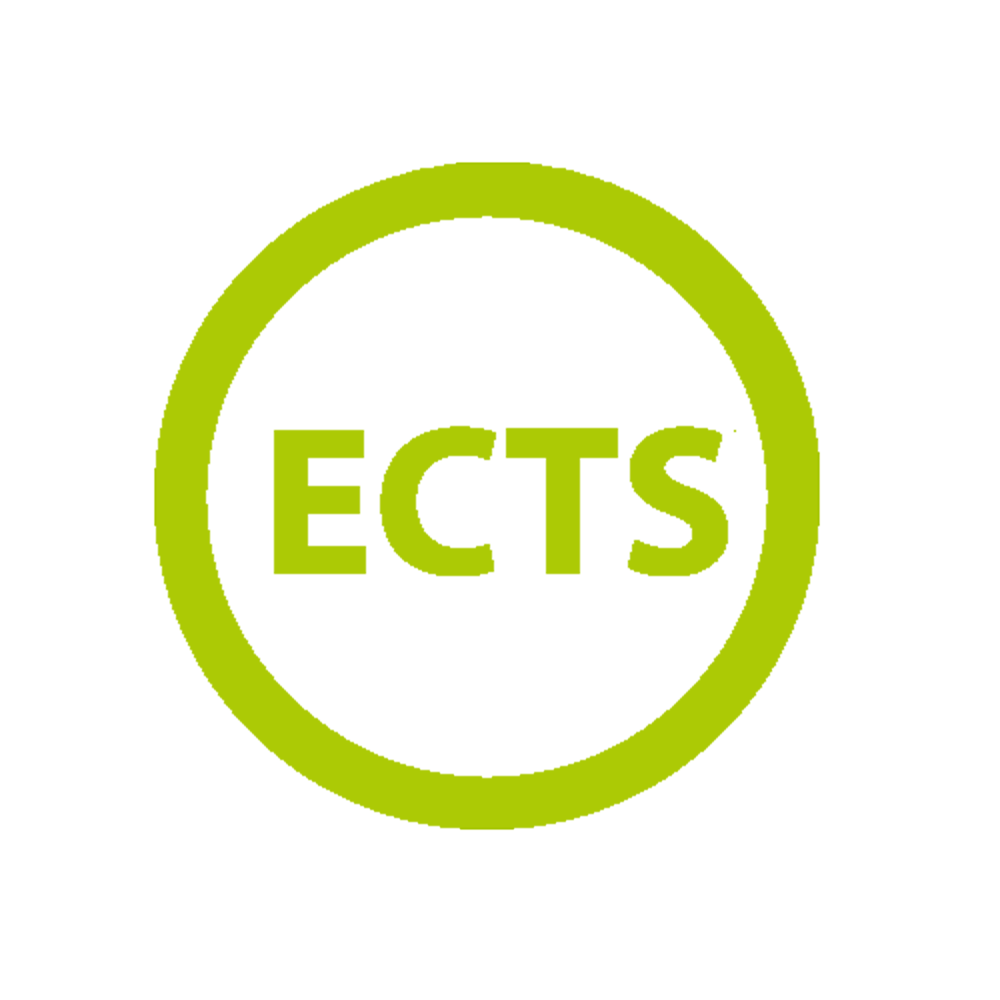
Program Credits
120 ECTS

Location
Mannheim & study trip to a European business hub

Program Start
Once a year
Next start: May 2026*

Tuition Fee
Current fee €29,900 (regular fee €32,000), Early Bird discounts and partial scholarships available
Voices from the Industry
Personal Orientation Interview with the MSBT Admissions Manager
To begin your consultation process, please use the Introduce Yourself function: We conduct a pre-check of your profile based on your submitted LinkedIn profile or CV, followed by a Personal Orientation Interview.
Please note that these online consultations will take place during our usual office hours on weekdays. These consultations do not start an application process and do not replace the selection interview.
Key Benefits
Gain the perfect toolkit to actively drive change across all areas of your company.
Enjoy world-class teaching provided by internationally recognized faculty members.
Apply your new knowledge in between modules and see the direct impact the program has on your career.
Benefit from a vibrant and global network throughout your career from the very first day of your studies.
- Average salary at the end of the program: €72,200
- 29% increase of salary on average at the end of the program
- 59% had a career development during the program
- 22% have a sustainability-related position at the end of the program
- 25% have a role at the interface with data at the end of the program
Further information
Frequently Asked Questions
Find answers to commonly-asked questions about the program here.
Learn moreMandatory Study Trip
A study trip is a crucial part of our program. Traveling with your peers is an opportunity to broaden your horizons and learn from visiting a business school located in a European business hub, where you will attend a mandatory course (accommodation is included). Please find some impressions from previous study trips in the gallery below.
Tuition Fees
The regular tuition fee is €32,000, we offer the Mannheim Master in Sustainable Business & Technology in its first year at the introductory price of €29,900.
You can study the Mannheim Master in Sustainable Business & Technology for 1.120,84 €/month.*
*The price is based on 24 monthly installments. Other payment options are available. For more information, please contact Ms. Gold. The monthly payment option is available for participants with a permanent employment contract in the European Union only. A down payment of €3,000 must be paid no later than two weeks after the admissions contract is signed.
Our participants have full access to the Mannheim Business School IT infrastructure (including Wi-Fi and the intranet), the library (including databases) and the sports facilities of the University of Mannheim, free of charge. Travel expenses and accommodation are not included.
The application fee of €99 is not refundable.
An initial payment of €3,000 shall become due within 14 days of signing the contract.
Scholarships
At Mannheim Business School, partial scholarships are available to successful and self-funded applicants to help you finance your master's degree. Please note that these are partial scholarships of €1,000 - €3,000. Improve your chances by sending us your application as early as possible.
Outstanding in this case stands for several achievements and characteristics, such as an excellent educational and professional background, a high TOEFL score, foreign language skills or social engagement. Also, your performance throughout our selection process highly contributes to your changes of a scholarship.
The high diversity of our cohorts is one of the key advantages of the Mannheim Master in Sustainable Business & Technology. This is confirmed by countless rankings and surveys. It is important to us that our participants enjoy the best possible learning experience. This means that they learn with and, above all, from each other and build up a global, cross-industry network already during the program.
In order to guarantee this high level of diversity in the class and in our network, Mannheim Business School has decided to offer partial scholarships for different industries for the Mannheim Master in Sustainable Business & Technology. These scholarships of € 1,000 are awarded to the first five successfully accepted applicants with distinctive industries. We will start accepting applications for the Industry Diversity Scholarship on Monday, December 1, 2025. The Industry Diversity Scholarship can be awarded in addition to our Early Bird discount and is automatically credited towards the tuition fee upon admission. An application is not required.
Contact


Downloads
- Mannheim Master in Sustainable Business & Technology (Part-Time) Sample Schedule
- Mannheim Master in Sustainable Business & Technology (Part-Time) Payment Information
- Mannheim Master in Sustainable Business & Technology (Part-Time) Factsheet
- Mannheim Master in Sustainable Business & Technology (Part-Time) Tax Tip
- Mannheim Master in Sustainable Business & Technology (Part-Time) Examination Regulations/Prüfungsordnung DE

